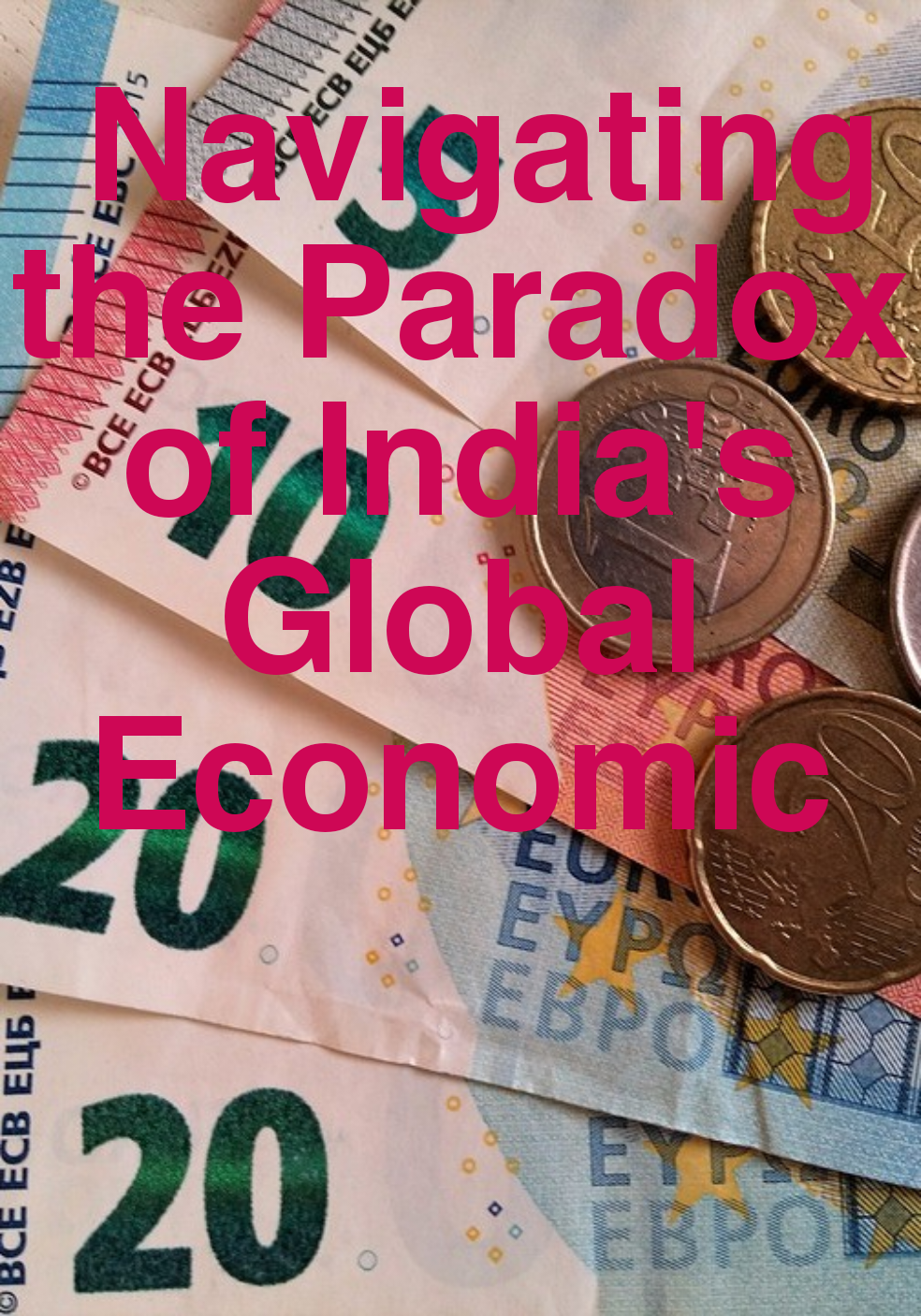Navigating the Paradox of India's Global Economic
Navigating the Paradox of India's Global Economic


In the labyrinthine realm of contemporary geopolitics, India stands as a compelling paradox, oscillating between the zenith of global recognition and the nadir of regional diminution. This dialectic of ascension and decline underscores the intricate tapestry of India's foreign policy landscape, where the pursuit of global prominence intersects with the erosion of regional influence.
The narrative of India's global trajectory is one imbued with the verve of absolute power accretion and the strategic dance of geopolitical pragmatism. Indeed, the past two decades have witnessed an epochal surge in India's aggregate power, propelled by robust economic growth, burgeoning military capabilities, and the demographic dividend of a youthful populace. Amidst this crescendo, India's ingress into the corridors of global governance, epitomized by its membership in the G-20 and active participation in multilateral fora such as the Quad and BRICS, attests to its burgeoning geopolitical salience.
Yet, amidst the grandeur of its global ascent, India confronts the specter of regional regression, characterized by a palpable erosion of relative power vis-à-vis its assertive neighbor, China. The dissonance between India's burgeoning global stature and its receding influence in South Asia unveils a conundrum ripe for critical inquiry.
The salient contours of India's regional decline are underscored by multifarious extraneous factors, chief among them being the resurgence of China as a preeminent regional hegemon. The vacuum precipitated by the withdrawal of traditional power brokers, particularly the United States, has emboldened China's incursion into India's geopolitical backyard, unsettling the delicate equilibrium of power in South Asia.
Furthermore, India's strategic pivot towards the Indo-Pacific, while instrumental in fostering global strategic stability, has inadvertently stretched its continental outreach thin, fostering a sense of regional disquiet amongst its immediate neighbors. The evolving dynamics of regional power play, propelled by the rise of China and the receding footprint of traditional power brokers, underscore a tectonic shift in South Asia's geopolitical landscape.
Confronted with this dichotomy of global ascent and regional decline, India stands at a pivotal crossroads, necessitating a recalibration of its strategic calculus. To navigate the labyrinthine contours of this paradox, New Delhi must embark on a voyage of strategic reassessment, predicated on proactive policy imperatives and imaginative engagement strategies.
First and foremost, India must reconcile with the fluidity of regional geopolitics, shedding antiquated conceptions of primacy and embracing the emergent realities of a transformed geopolitical milieu. A nuanced reimagining of India's regional engagement paradigm, rooted in traditional strengths and cognizant of shifting dynamics, holds the key to revitalizing its influence in South Asia.
Moreover, India's maritime prowess presents a potent avenue for regional reassertion, offering a conduit for strategic convergence with its smaller South Asian neighbors. Leveraging maritime partnerships within the ambit of the Indo-Pacific strategic framework holds the promise of tethering regional actors to India's orbit, countervailing against the gravitational pull of China's burgeoning influence.
In tandem, India must espouse a holistic approach to regional engagement, transcending traditional zero-sum paradigms and embracing the ethos of inclusive diplomacy. Facilitating informal dialogues and conflict management mechanisms, underpinned by the soft power allure of Indian civil society, offers a panacea for assuaging regional anxieties and fostering collaborative solutions.
In conclusion, the paradox of India's global ascent amidst regional decline embodies a quintessential conundrum of contemporary geopolitics. As India grapples with the imperatives of this dialectic, the imperative for strategic recalibration looms large. By charting a course predicated on astute diplomatic finesse, imaginative engagement, and soft power projection, India can navigate the labyrinthine contours of this paradox, emerging as a beacon of stability and influence in an increasingly tumultuous geopolitical landscape.




























































